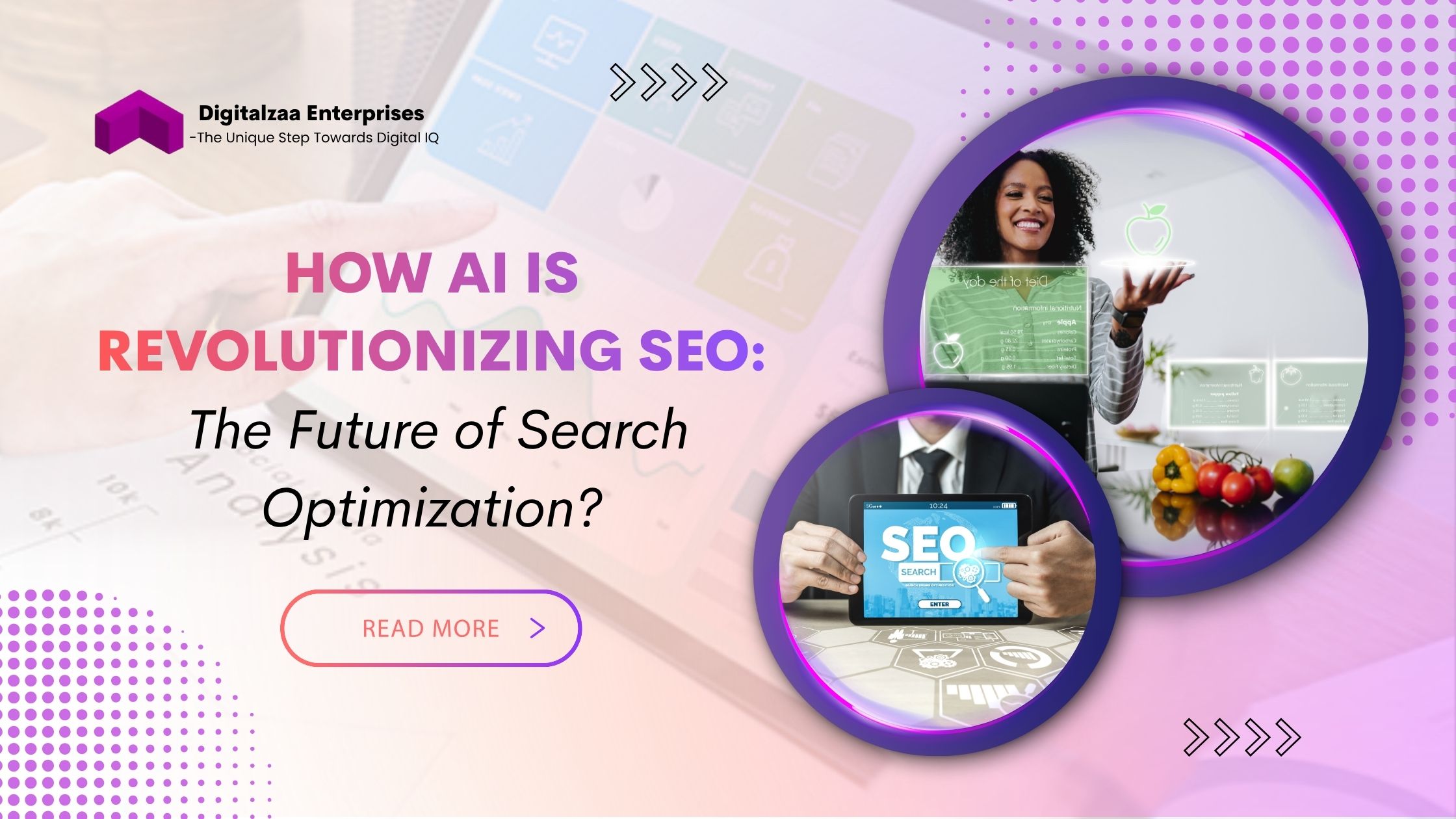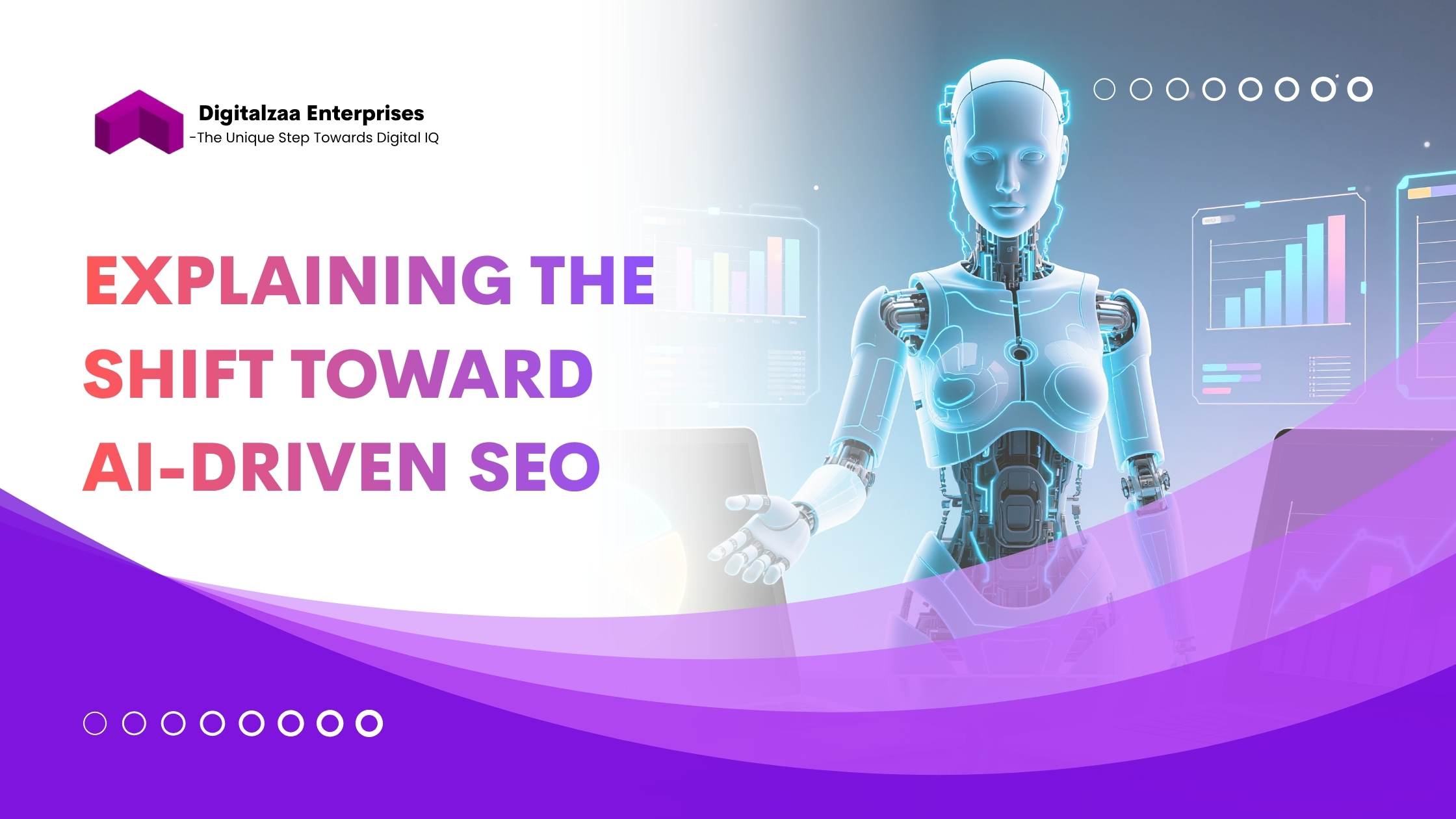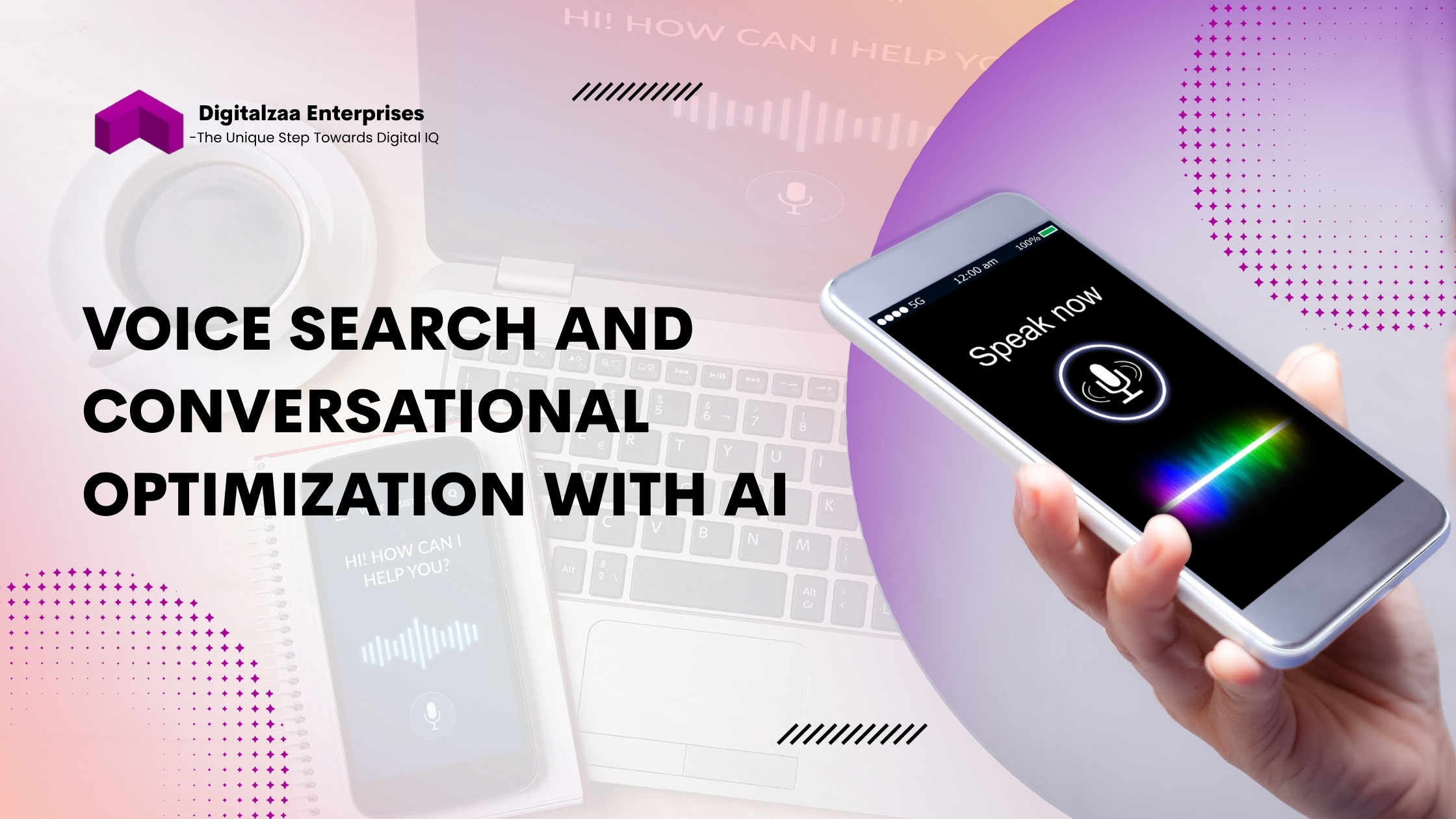How AI Is Revolutionizing SEO: The Future of Search Optimization?

Search Engine Optimization (SEO) has always been a key pillar of digital marketing. However, SEO is no longer just about keywords, backlinks, and meta tags. Search engines today are more intelligent than ever, capable of understanding context, user intent, and content relevance. This shift has largely been driven by Artificial Intelligence (AI). As a result, businesses must upgrade their strategies to stay competitive — and this is where AI-Driven SEO comes into the picture.
The introduction of AI in SEO has completely changed how marketers research keywords, analyze competitors, create content, optimize websites, and measure performance. AI in Search Optimization enables more accurate decisions, improved targeting, and automated execution. It helps businesses stay aligned with search engine algorithms that are now built on machine learning models.
This blog explores how AI is transforming SEO, what advantages it offers, and what the future of search optimization looks like in an AI-dominant world.

Explaining the Shift Toward AI-Driven SEO
Google’s algorithm updates, like RankBrain, BERT, and MUM, are built using advanced machine learning. This means that search engines now understand:
- Search context rather than just exact keywords
- Semantic meaning of words
- User behavior and search patterns
- Intent behind queries
- Quality and relevance of content
This intelligence changed the SEO landscape. Traditional SEO approaches that focused heavily on keyword density and backlinks alone are no longer enough.
AI-Driven SEO aligns SEO strategies with how search engines think today — intelligently and contextually.
How AI Is Changing Keyword Research
Keyword research is one of the most important aspects of SEO. Previously, marketers relied on manual tools and estimations. But with AI SEO Tools, keyword research becomes faster and more precise.
AI Helps By:
- Predicting long-tail keyword opportunities
- Understanding user intent patterns
- Suggesting semantic keyword clusters
- Identifying keywords that competitors are ranking for
- Forecasting keywords that will rise in future trends
For example, tools like Semrush, Ahrefs, and SurferSEO use AI to show keyword difficulty, search volume trends, and ranking opportunities with high accuracy.
Instead of just selecting keywords, AI enables marketers to build data-driven semantic keyword maps that align with search intent — improving rank performance significantly.
Content Creation Powered by AI
Creating SEO-friendly content has always been resource-intensive. Content needs to be valuable, relevant, and engaging — while meeting keyword and formatting requirements. This used to take long hours of brainstorming and editing.
With SEO Automation with AI, content creation has become smarter.
AI-Enabled Content Benefits:
- Suggests headlines and outlines based on ranking competitors
- Provides readability and clarity improvement suggestions
- Recommends related keywords naturally
- Ensures tone consistency across all content
- Optimizes internal and external link placement
AI writing assistants such as ChatGPT, Jasper, and Copy.ai help content teams scale content while maintaining quality.
However, AI is a tool, not a replacement. The best SEO approach blends AI efficiency with human creativity.
Improving On-Page SEO with AI
On-page SEO enhances content structure, page speed, mobile usability, and keyword optimization. AI tools now automate these tasks.
AI Helps Optimize On-Page SEO By:
- Detecting broken links and crawl errors
- Suggesting improvement in content formatting (headings, images, metadata)
- Monitoring core web vitals and recommending fixes
- Optimizing for voice search and conversational queries
AI-powered tools like Screaming Frog, RankMath, and Yoast analyze hundreds of on-page signals instantly — something manual SEO cannot achieve efficiently.
This ensures websites remain search-engine friendly at all times.
AI in Technical SEO
Technical SEO often involves checking backend performance, website structure, and indexing — which requires deep analysis and can be time-consuming.
AI-Driven SEO tools now automate:
- XML sitemap generation
- Schema markup suggestions
- Indexation monitoring
- Site architecture performance scoring
- Page load time optimization
For example, AI can detect loading delays caused by large file sizes and automatically suggest compression adjustments, improving both user experience and rankings.
AI Enhances User Experience (UX) — A Major SEO Ranking Factor
Search engines prioritize websites that provide a seamless, efficient, and enjoyable experience.
AI Enhances UX By:
- Personalizing content recommendations
- Improving navigation paths
- Reducing bounce rate
- Speeding up website performance
- Suggesting accessibility improvements
AI-powered UX analytics tools such as Hotjar and Microsoft Clarity provide heat maps and behavior reports that help understand how users interact with pages. Marketers can then refine design and layout to improve engagement — directly boosting search rankings.
AI-Powered Competitor Analysis
Competitor research is essential for developing effective SEO strategies. AI tools help marketers gain deep insights into what competitors are doing successfully — and where they can outperform them.
AI Reveals:
- Competitors’ top-ranking keywords and pages
- Backlink sources competitors use
- Content gaps and expansion opportunities
- SERP ranking fluctuations
- PPC and paid search strategies
Tools like SEMrush Competitive Analysis, Ahrefs Site Explorer, and SimilarWeb automate competitor evaluation to build winning SEO strategies.

Voice Search and Conversational Optimization with AI
Voice search continues to grow rapidly due to smart assistants like Siri, Alexa, and Google Assistant. Optimizing for voice search requires conversational, natural language content.
AI tools analyze voice patterns, FAQ-style queries, and conversational phrases.
AI Enables Voice-Based SEO By:
- Targeting natural language search queries
- Structuring content into question-answer formats
- Providing semantic and contextual keyword suggestions
As the future leans toward hands-free search, AI will play a critical role in preparing websites for voice-driven search results.
AI in Link Building and Outreach
Link building is one of the hardest SEO tasks. AI accelerates link-building strategies by:
- Identifying high-quality backlink opportunities
- Analyzing spam vs. authoritative domains
- Automating outreach emails
- Providing link quality scoring metrics
AI SEO Tools like Moz, Majestic, and BuzzStream streamline backlink efforts, ensuring safer and more strategic link profiles.
Predictive Analytics: The Future Core of AI-Driven SEO
Predictive SEO is the next major breakthrough.
Using historical data and AI forecasting models, marketers can now:
- Predict ranking fluctuations
- Identify content trends before they peak
- Adjust strategies before traffic declines
- Recommend new content topics before competitors cover them
This proactive approach eliminates guesswork in SEO — making strategies smarter and future-proof.
The Benefits of AI-Driven SEO
|
Benefit |
Impact |
|
Higher Accuracy in Keyword Targeting |
Better search visibility |
|
Automated Optimization |
Saves time and increases efficiency |
|
Improved Content Quality |
Higher engagement and conversions |
|
Better User Experience |
Reduced bounce rate & improved ranking |
|
Faster Decision Making |
Real-time performance improvements |
By implementing AI in Search Optimization, businesses enjoy:
- Stronger online visibility
- Higher organic traffic
- Improved ROI from SEO efforts
Challenges in Implementing AI for SEO
While AI offers tremendous potential, businesses may face:
- Learning curve in understanding AI tools
- Data dependency — AI requires high-quality data
- Initial investment in AI-powered platforms
- Ethical concerns with automated content creation
However, with proper training and a balanced human-AI collaboration, these challenges can be minimized.
The Future of Search Optimization with AI
The future of SEO will be:
- Predictive, not reactive
- Automated, not manual
- User-focused, not keyword-focused
- Experience-driven, not just algorithm-driven
We will see:
- AI-generated hyper-personalized content experiences
- Real-time SEO dashboards with automated optimization
- Fully conversational and voice-driven search environments
- SEO strategies based on predictive behavior modeling
Businesses that adopt AI-Driven SEO early will stay ahead of competitors.
Conclusion
AI is not replacing SEO — it is redefining it. The evolution of SEO toward machine-learning-driven systems requires marketers and businesses to adopt intelligent strategies. AI-Driven SEO improves keyword research, content optimization, user experience, and overall search performance. Meanwhile, AI in Search Optimization ensures that marketing remains aligned with how search engines evaluate and rank content today.
By leveraging AI SEO Tools and embracing SEO Automation with AI, businesses can deliver more relevant content, improve rankings, and achieve long-term organic growth.
The future of SEO is already here — and it is powered by Artificial Intelligence.


